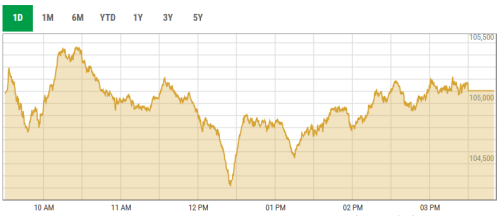SEATTLE: Microsoft Corp’s new chief executive, Satya Nadella, likes to boast that Bing is growing and powers 30 per cent of the Internet search market, making it a worthy competitor to Google Inc.
But within the advertising and research industries that measure and manage search as a business, Microsoft’s strength is an open question.
The figures quoted by Microsoft, which include searches by partner Yahoo Inc, are much higher than the rate at which people actually click on the links that a search returns, according to new studies by industry researchers.
The new search data calls into question Bing’s effectiveness for advertisers. It also lends support to the argument from some investors that Microsoft should sell Bing.
Microsoft has been in the Internet search business since 1998, and Bing — five years old this month — is its latest and most intense effort to unseat market leader Google. The company initially assumed that its world-class engineers and the sheer scale of its Windows user base would sweep away competitors, but Google has not relinquished any share.
To measure its progress in the search business, Microsoft prefers to cite market share numbers from comScore, which established itself as the prime source for Internet data a decade ago, when reliable numbers were hard to come by, and has long been considered the gold standard.
ComScore said Google sites had 67.6pc of US searches in May, compared with Microsoft’s 18.8pc and Yahoo’s 10pc, which are both powered by Bing.
ComScore bases its calculations on desktop computer Internet searches by about a million anonymous people in the United States. It does not measure searches on mobile phones or tablets, which are dominated by Google, but it does count searches within the big MSN and Yahoo portals, factors which help explain why Bing has such a significant share.
But advertisers are less interested in searches than what users do with search results. They want traffic to their sites; they care what search result links users click and what sites they visit. In recent years, technology has made that behaviour much easier to track.
“Clicks are important because they tell us how well we are capturing [search users] demand, and of course advertisers pay based on clicks,” said Jason Hartley, group media director at search marketing firm 360i, whose clients include brands such as Coca-Cola and Verizon. ComScore data “can lead you down the wrong path, or it doesn’t give you as much insight as you’d like,” he added.
A study published last month by Conductor, a company that advises marketers on how to stand out in Web searches and social media, showed Google accounted for 85pc of traffic to websites from search engines, with only 5pc from Bing and 7pc from Yahoo.
Published in Dawn, June 22nd, 2014
















































Dear visitor, the comments section is undergoing an overhaul and will return soon.